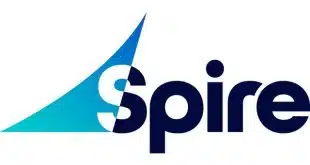Any signature-based debit card product that banks in the Pulse electronic funds transfer network may issue with Discover Financial Services Inc. will most likely offer interchange income equal to what they earn on Visa and MasterCard signature debit, the top executive at Pulse says. “Any [signature-debit] fees will have to be competitive to be appealing to the members,” says Stan Paur, president of Houston-based Pulse, which in January became an operating unit of Discover following a $311-million acquisition by the credit card company. The merger was consummated following a vote by the Pulse member banks. Discover is itself a unit of Morgan Stanley. Discover noted last year its ambition to add a signature-debit product as part of its plans to attract bank issuers to its network, and its acquisition of Pulse was widely seen as a move to gain a major foothold debit processing, but most particularly signature debit, which typically pays card issuers higher interchange than does PIN debit (Digital Transactions News, Nov. 16, 2004). Pulse, one of the largest PIN debit switches in the country, also processes Visa and MasterCard signature debit for 250 of its 4,000 member financial institutions. But industry observers have been skeptical of Discover's plans to expand signature debit through Pulse, noting that Discover has historically undercut the bank card networks in its merchant pricing. Observers note this tends to make Discover less appealing to issuers, since it also means less income for them in the form of interchange. Paur is close-mouthed about the details of Pulse's new plans under Discover beyond insisting that Discover's signature-debit offer will be no less appealing to Pulse's members than that of the bank card associations. “We're less than a month into the combination,” he says, adding that many operational and pricing details remained to be hammered out. “All these issues will be discussed.” Visa and MasterCard interchange rates for signature debit vary by merchant category and transaction volume. A major supermarket, for example, pays interchange of 0.70% plus 15 cents to accept a Visa check card payment, far less than the standard rate of 1.60% plus 15 cents for a card-not-present signature-debit transaction. These fees are typically rolled into the total discount fees merchants pay their acquiring processors, which pass the interchange on to issuers. While he will not reveal any volume projections, Paur is clearly looking for major results from the merger with Discover. “The board of Pulse saw value in the expansion of our offerings in the signature debit space and in the prepaid space,” he says. “Discover has the resources to deliver those to the industry. We are looking for strong growth.” The merger, he says, was approved by an “overwhelming” majority of the Pulse members, each of which under network rules had one vote, regardless of the volume they processed through the network. “It was overwhelming support for the transaction,” Paur says, without disclosing the vote totals. “All the institutions saw a benefit to having another alternative in the market [to Visa and MasterCard].” Discover filed a federal lawsuit against Visa and MasterCard last October alleging the bank card networks had illegally barred the company from doing business with banks in markets like debit. The suit came minutes after a U.S. Supreme Court decision to let stand a lower-court ruling that had invalidated longstanding rules at the bank card associations that had prevented members from issuing cards on either the Discover or American Express Co. networks. AmEx filed a similar suit against the associations several weeks later.
Check Also
The Clearing House’s ACH Volume Swells As Adoption of Digital Transactions Spreads
Transactions on the Electronic Payment Network, the automated clearing house network, operated by The Clearing …





